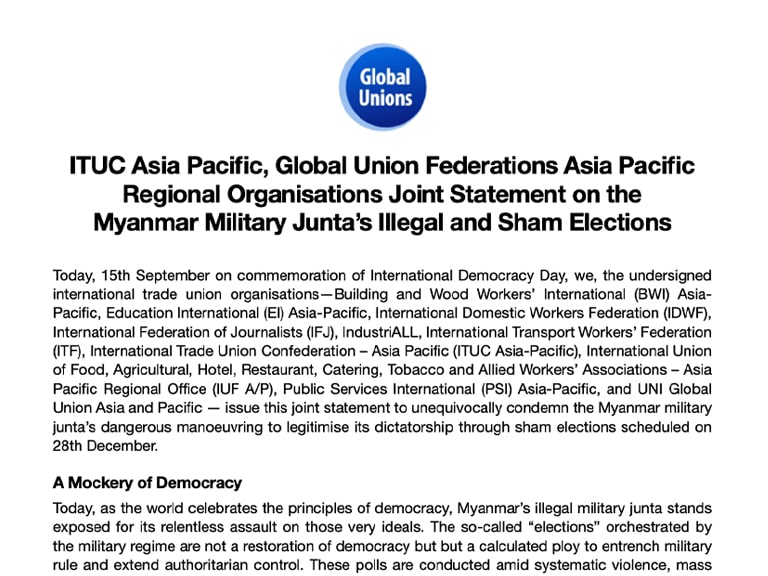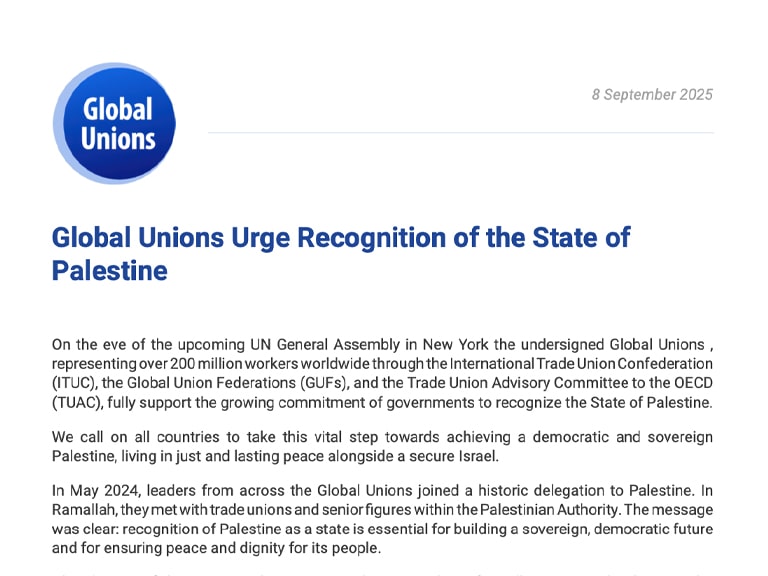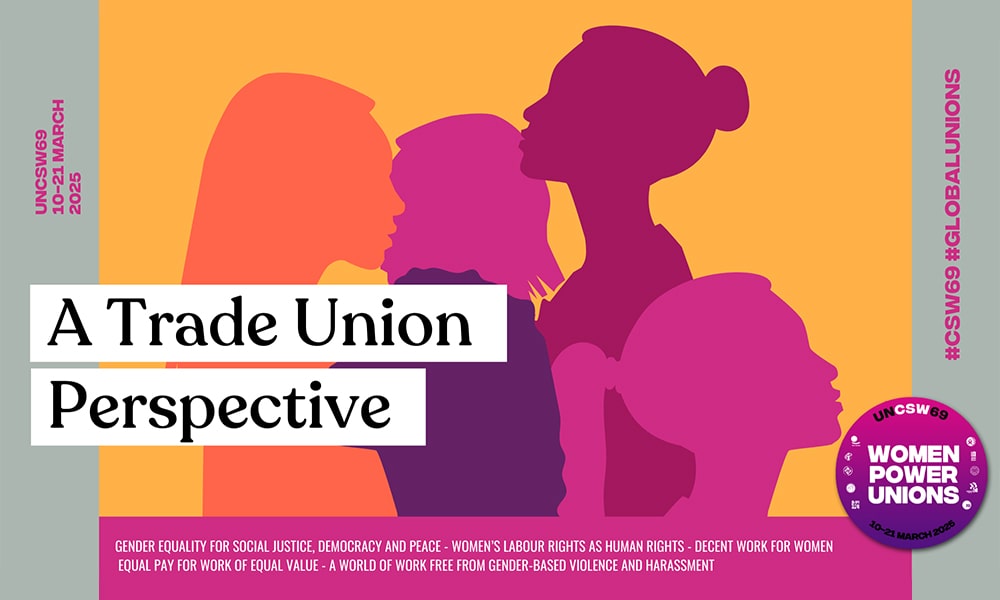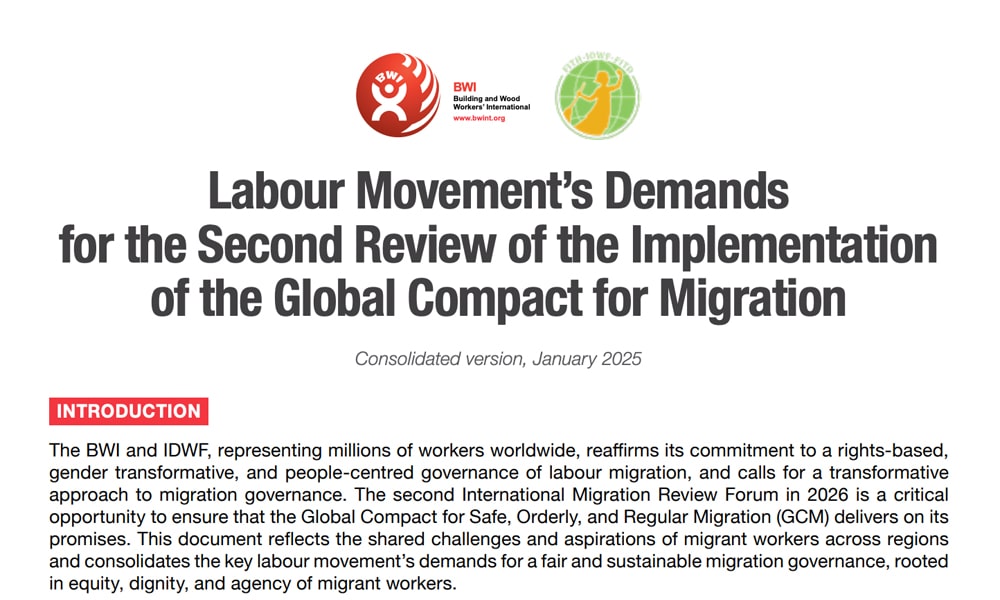The ILO Convention 189
Decent Work for Domestic and Household Workers

On 16 June 2011, domestic workers and supporters from around the world unfurled a banner from the balcony of the grand United Nations Assembly Hall in Geneva, Switzerland. It read “C 189 – Congratulations! Now comes the domestic work for governments: RATIFY – IMPLEMENT!” In the hall below, supporters in the official delegations of governments, workers and even some employers clapped and cheered.
The ILO Convention 189 (C189) represents a historic achievement for domestic and household workers and the entire labour movement. This international treaty acknowledges domestic workers as equal to any other wage earners with an acceptable minimum standard for working conditions. C189 is also an important tool to support and guide its ratification while bringing us international recognition and dignity.
The overwhelming vote for the Convention came after decades of struggles by domestic workers’ organizations for recognition, rights and respect. It was also the result of two long negotiating sessions at the International Labour Conferences (ILCs) of 2010 and 2011. Some employers and governments argued heavily against us, but others supported us, and we had an excellent negotiator heading the Workers’ Group, Ms Halima Yacob, from Singapore. Many factors played a role during the ILC negotiations, and many organizations have been involved in achieving our Convention. But it was the direct participation of domestic workers which was crucial.
Let’s Make C189 a Reality for All!
During the negotiations and until today, domestic workers lead initiatives at every level to influence trade unions, governments and employers’ associations to recognize our demands. At the same time, our organizations have grown in strength and capacity.
IDWF’s objective is to ensure C189 is ratified in every country, with domestic and household workers using the Convention to promote policies at the national level while ensuring its implementation. Only by building strong organizations of domestic workers, with broad-based alliances, we will be able to make “decent work for domestic workers” a reality.
After ratifying, a government has to change its national laws to fit what the Convention states. But this can take a lot of ongoing advocacy work by domestic workers and their supporters.
Despite the difficulties in getting C189 put into national legislation and then properly implemented, it is vital to get more countries to ratify, or at the very least, start the process of legal changes.
- There are some 76 million domestic workers globally.
- About 1 in 25 of all women workers are domestic workers.
- Migrant domestic workers number about 11.5 million, nearly 75 per cent of them women.
- There are some 7.4 million children under the age of 15 doing domestic work.
- As more people live longer, there is ever more need for domestic workers to help care for the elderly.
As of 2022, the IDWF and its affiliates have supported the ratification of C189 in 35 countries!
Read more
Achieving C189: How we did it
Landmark treaty for domestic workers comes into force
C189 – “The work that makes all work possible” finally recognized by international law
Domestic workers celebrate rights






